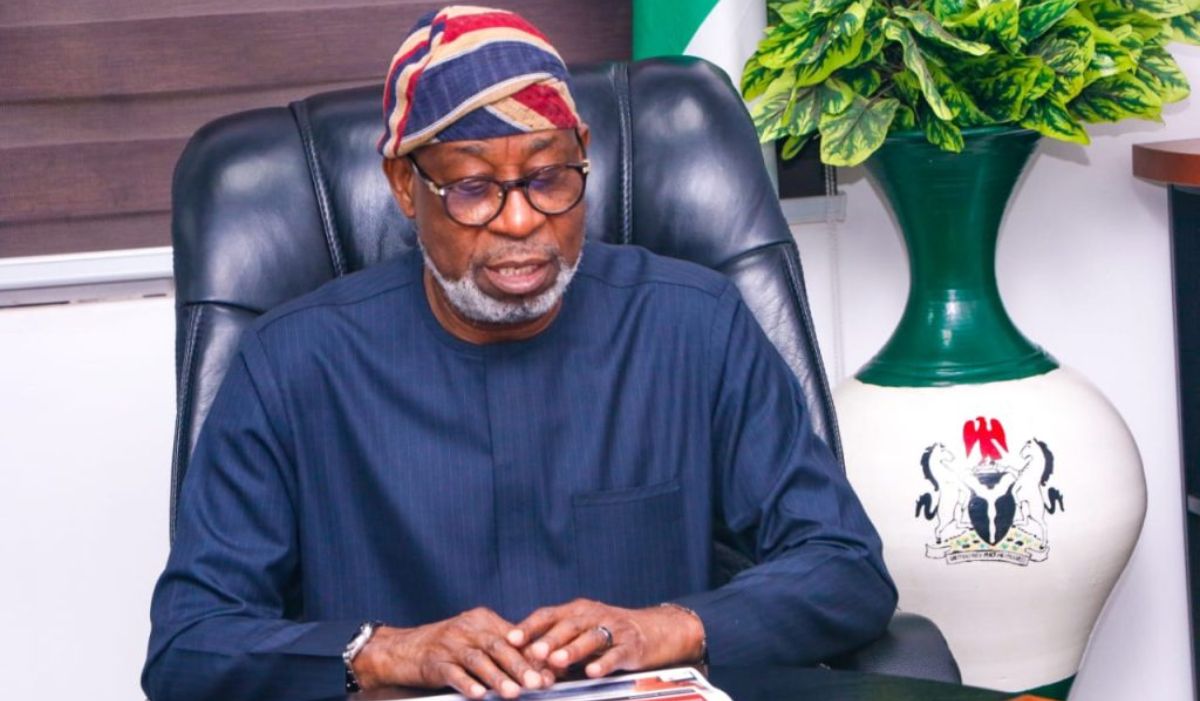China Eyes Nigeria’s Minerals for Electric Vehicle Revolution – Ambassador Calls for Deeper Ties

Chinese Ambassador to Nigeria, Yu Dunhai, has called for deeper cooperation between the two nations to develop Nigeria’s solid minerals sector, with particular emphasis on establishing electric vehicle manufacturing facilities within the country.
This was disclosed in a statement released on Sunday by Segun Tomori, Special Assistant on Media to the Honourable Minister of Solid Minerals Development.
During a diplomatic visit to Dr. Dele Alake, Minister of Solid Minerals Development, held over the weekend, Ambassador Dunhai highlighted Nigeria’s wealth of natural resources and China’s strategic regard for the West African nation within its international relations framework.
The Ambassador referenced the significant diplomatic meeting between President Bola Tinubu and Chinese President Xi Jinping during Tinubu’s official visit to China, where both leaders committed to advancing their countries’ relationship to the level of a comprehensive strategic partnership, opening new avenues for cooperation.
“Chinese companies are already deeply involved in Nigeria’s mining sector, from exploration to processing. We aim to deepen this collaboration, especially in line with President Tinubu’s eight priority areas, notably economic diversification through solid minerals,” he added.
Ambassador Dunhai emphasised that the Chinese Embassy and Beijing have consistently instructed Chinese enterprises in Nigeria to comply with local laws, maintain corporate social responsibility standards, and observe environmental and safety protocols. He stressed China’s firm stance against unauthorised mining activities and confirmed readiness to collaborate with Nigerian authorities in pursuing legal action against violators.
Minister Alake acknowledged the enduring China-Nigeria relationship and recognised that the majority of Chinese businesses operate within established legal parameters. Nevertheless, he raised concerns about misconduct by certain operators that damage China’s reputation, citing a recent widely circulated video allegedly showing a Chinese individual offering bribes to local security personnel.
“We’ve taken action against illegal operators, including some Chinese nationals. While isolated, such incidents undermine the good work of many compliant Chinese firms. We need your cooperation in ensuring that such culprits are brought to justice,” the Minister asserted.
He praised the effectiveness of the Mining Marshals initiative in combating unauthorised mining operations, noting that this enforcement unit has successfully increased sector awareness and improved regulatory compliance among both domestic and international operators.
He reaffirmed Nigeria’s commitment to welcoming serious investors while emphasising the government’s renewed focus on domestic value addition within the mining industry.
“For years, our minerals have been exported raw to fuel foreign industrialisation. That must change. We now prioritise local processing to drive Nigeria’s development. For instance, with the abundance of lithium, we want to see local manufacturing of electric vehicles and batteries,” he said.
Minister Alake encouraged Ambassador Dunhai to promote comprehensive investment approaches among Chinese businesses—encompassing the entire value chain from mineral extraction to final product manufacturing—within Nigeria’s borders. He highlighted the country’s substantial domestic market and the opportunity to reduce dependence on petroleum-based fuels through electric vehicle manufacturing.
In response, Ambassador Dunhai endorsed Nigeria’s policy of promoting local value addition, noting that supporting African industrialisation represents one of President Xi Jinping’s fundamental objectives. He disclosed that preparations are underway to establish electric vehicle production facilities and additional manufacturing operations in Nigeria.





